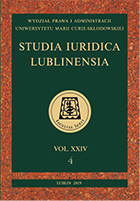
We kindly inform you that, as long as the subject affiliation of our 300.000+ articles is in progress, you might get unsufficient or no results on your third level or second level search. In this case, please broaden your search criteria.

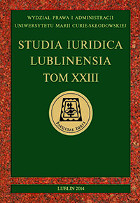
On 1 July 2011, the law of 15 April 2011 on the health care sector, which aimed to clarify and harmonize the legal forms of the health care provided, entered into force. In order to pursue the goal, many new terms, such as health care, health care facilities, health care facilities or non-contractors' health care facilities have been introduced. The legal concepts proposed by the legislature have been the source of numerous interpretative doubts. The definition of individual terms creates many difficulties in their correct interpretation. In many cases, doubts are so great that the questions of ratio legis, the internal coherence and the possibility of agreeing on the legal measures with the legal system applicable in the Republic of Poland. One of the sources of the difficulties of interpretation mentioned is the type of design from the definition of health care. The definition contained in the Act, which refers to imprecise phrases such as health care, health promotion, and didactic and research related to the provision of health services and health promotion, appears to be extremely general. There is also a doubt about the legal division of the health care sector into the regulated health sector under the Act of 2 July 2004 on freedom of trade and health care, which has not been regulated as such. The definition of the concept of health care also raises wide concerns. A reference to the fact that the health care institutions on the one hand may employ entrepreneurs and, on the other hand, other economic operators makes their classification more difficult in the case of acquiring the entrepreneurial status. Apparent problems were additionally complicated by the legal segregation of the non-entrepreneur health facilities. The creation of such a category of legal entities, with the emphasis on budgetary units and public autonomous administrative units in the field of health care, does not correspond to the entrepreneur's definition adopted in Poland. Similar imprecise difficulties arise from the imprecise legal regulation, according to which the shareholders of the BGB-Gesellschaft, the shareholders of the open trade company as well as the natural persons practicing a one-man trade within the framework of their doctor's practice were excluded from the definition of the health facilities. The above-mentioned question of interpretation makes it difficult to determine the personal and material scope of the law. Consequently, contrary to the intentions of the legislature to create transparent and clear definitions, the law on health does not exclude not only the inadequacies of the existing rules but also the terminological chaos already prevailing in this legal field.
More...
The spa municipality is a special type of local government municipalities in Poland. The legal basis of its functioning is the Act of 8 March, 1990 on the local government, but its special status as a health resort, and the list of tasks that implements the municipality’s tax legislator is described in the text of the Act of 28 July, 2008 on spa treatment, spas and conservation areas of the spa and the spa municipalities. Commune defines spa a town, where the entire area or part thereof has been given the status of the spa. The municipality applying for granting the status of a given area of the spa or health resort status is required to draw up the so-called spa sampling, in order to identify opportunities for health and spa resorts in the area. The minister competent for health matters, after confirmation of fulfilment through the conditions necessary to obtain the status of the spa or health resort status, applies to the Council of Ministers for granting a given area the status of the spa or health resort status. The Council of Ministers, by regulation, gives the status of a given area of the spa or health resort area status. A form of cooperation between spa municipalities is the Association of Municipalities of the Polish Republic Health Resorts whose aim is the development of Polish spas and localities of spa values, supporting the development of the spa, tourist and recreational sports in the municipalities belonging to the Association.
More...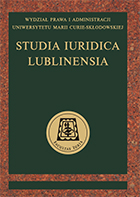
The aim of this article is to explain the main directions of district and urban authorities activity in Sandomierz in the years 1944–1950. The activities involved the issues of the war destruction and overpopulation in Sandomierz County. These actions were further hindered by the fact that the Red Army troops stationed in this area to mid-year 1946. Therefore, in the first place, the county and city authorities, had to handle the problem of food supply which was based on assignments from the outside, and housing. In the second place, the county and city authorities had to bring the county and cities up after the negligence and destruction caused by occupation and the war. Furthermore, it was very important to enliven the district through the construction of a processing base for the fresh market gardening industry.
More...
The term “police” is derived from the Greek term “politei” which denotes an initial system of state. Since the 16th century, particularly in the 17th and 18th centuries, it has functioned as the synonym of the term “administration”. In Poland, since the 18 th century, despite the lack of the reception of the assumptions of the West-European police studies, the term started to be used in that sense. Polish political writers, starting with Stanisław Leszczyński and ending with the authors of the reform of the state’s political system presented at the Four-Year Sejm, made an attempt at defining the term “police”. The term was understood in a variety of ways, for most writers it meant state’s internal order but it also denoted service administration such as fire, construction, medical or traffic police, that is all services whose aim was to secure social prosperity and well-being. The scope of police tasks often included the judiciary system. The police issue was in the scope of interest of the writers supporting the reforms as well as of their opponents, of those who admired the republican system as well as of the advocates of the concept of a strong state following the example of absolute monarchies. However, a vast majority of Polish authors did not understand the term “police” as a means of strengthening the power of the state but as a means of reassuring good order, that is social security, peace and quiet.
More...
The article is an outline of political thought of Ignacy Korwin-Milewski, one of the representatives of the group of landlords, who operated in the second half of the 19th and early 20th centuries in Northwestern provinces of the Russian Empire. The author attempted to expose two issues, which seems important from the point of political views of the main character of the paper. The first relates to the definition and characterization of the basic features of the Lithuanian nobility, as well as determining its fundamental political objectives. The second one determines the relationship between the nobility and the Russian emperor. According to Ignacy Korwin-Milewski, the relationship was based on the principle of far-reaching loyalism.
More...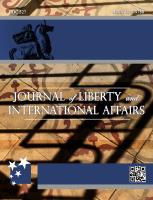
The matter of EU enlargement to the Western Balkans has become overshadowed by pressing issues such as Brexit, the rise of the radical right and international terrorism. Notwithstanding the pressure to address these issues accordingly, increasing tensions and ethnic outbursts across the Western Balkan region are reason enough for the European Union to devote significant attention to accession talks. This article addresses the Western Balkan countries’ Europeanization process with consideration of Russia as an external actor. By assessing the candidate countries’ progress amid EU negotiations, the article suggests that the countries’ bilateral ties with Russia have an impact on the Europeanization process which is particularly visible in Chapter 31 Foreign, security, and defence policy of the acquis communautaire. The broader geopolitical framework that comprises the multifaceted relationship between the EU and Russia is crucial for understanding the dynamics of EU-Western Balkans-Russia triangle.
More...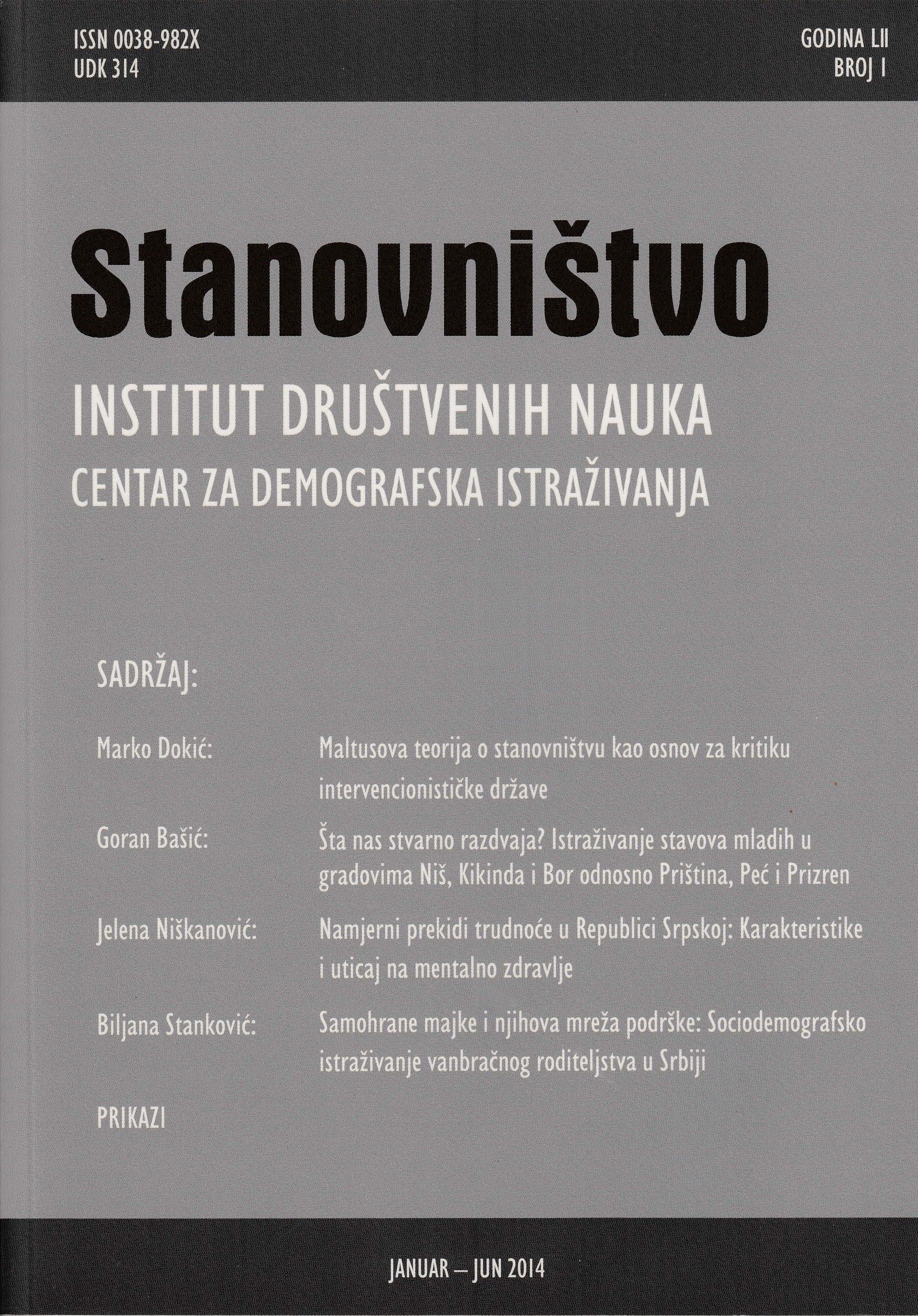
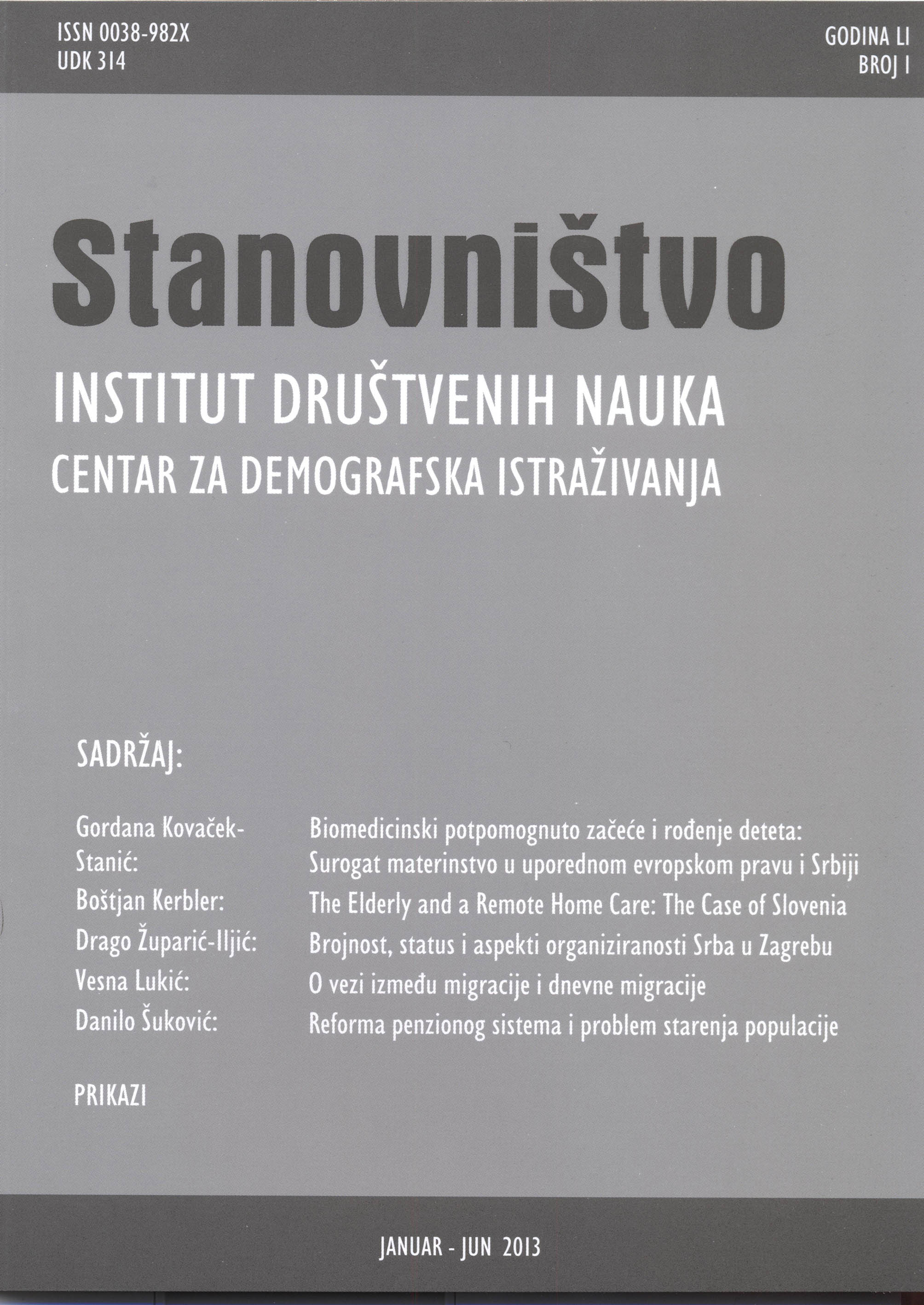
Surrogate motherhood is an arrangement in which a woman agrees to carry and deliver a child for another couple who ordered the pregnancy. This procedure is applied today in Great Britain, Holland (although without legal regulations), Israel, Greece, Ukraine, Armenia, Georgia, the USA and Australia, and it is forbidden in France, Austria, Spain, Germany, Switzerland and Slovenia. There are two types of surrogacy, one when the woman gives birth to a child who is genetically her own ("partial", genetic surrogacy), and the other where the surrogate mother only carries and gives birth to a child, whereby the child is genetically from the couple that wanted the child, or the fertilized egg is from a third woman (donor), or the embryo was donated ("full", "total", gestational surrogacy). In these cases two women take part in conception and birth of the child while in the last case there is a third woman who will raise the child. Biologically observed, the woman whose egg has been fertilized may be called the genetic mother, while the woman who carried the pregnancy and gave birth to the child – the gestational carrier. Taking into consideration that the Preliminary Draft of the Serbian Civil Law anticipates the introduction of surrogate motherhood into domestic law, we believe restrictive solutions should first be taken into consideration. This would mean that only full surrogating should be allowed, namely the egg should be from the woman who wants the child and not the surrogate mother. In domestic conditions, genetic surrogation should not be allowed as it leads to confusion in family relations, and kinships still have an important social and legal significance in our country. The surrogate mother should be a woman who has already given birth, because in that way any possible shocks which might arise after birth when the woman who has to handover the child to the intended couple would be avoided. The next condition would be that persons involved in this procedure should have usual residency in Serbia so as to prevent any international complications or problems. As far as compensation is concerned, only compensation of so-called reasonable expenses which the surrogate mother would incur should be allowed. The surrogate contract should be approved by a court judge, who would have the obligation to determine if all legal conditions have been fulfilled for surrogate motherhood, and to explain the contract effects to the contracting parties. Apart from that, psycho-social counseling of all persons involved in the procedure should be anticipated.
More...
In the last couple of years almost all European countries have passed legislation which regulates organization and functioning of information-security system. This is also the case with Italy, a country which has a long tradition of legal regulation of information-security and protection of data secrecy. The Act No. 801 of 1977 on establishment and organization of services for information and security and state secret is surely one of the most important legal sources in this area. High quality solutions which it contains have remained in force for three full decades, in spite of frequent periods of political instability. Nevertheless, the current information-security system is based on a fully new regulation – Act No. 124 on Information system for security of the Republic and new regulation of state secret. On the basis of this Act of 2007, some of the key information and security institutions of the Republic of Italy have been reorganized or renamed.
More...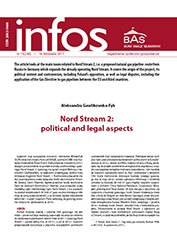
The article looks at the main issues related to Nord Stream 2, i.e. a proposed natural gas pipeline route from Russia to Germany which expands the already operating Nord Stream. It covers the origin of the project, its political context and controversies, including Poland’s opposition, as well as legal disputes, including the application of the Gas Directive to gas pipelines between the EU and third countries.
More...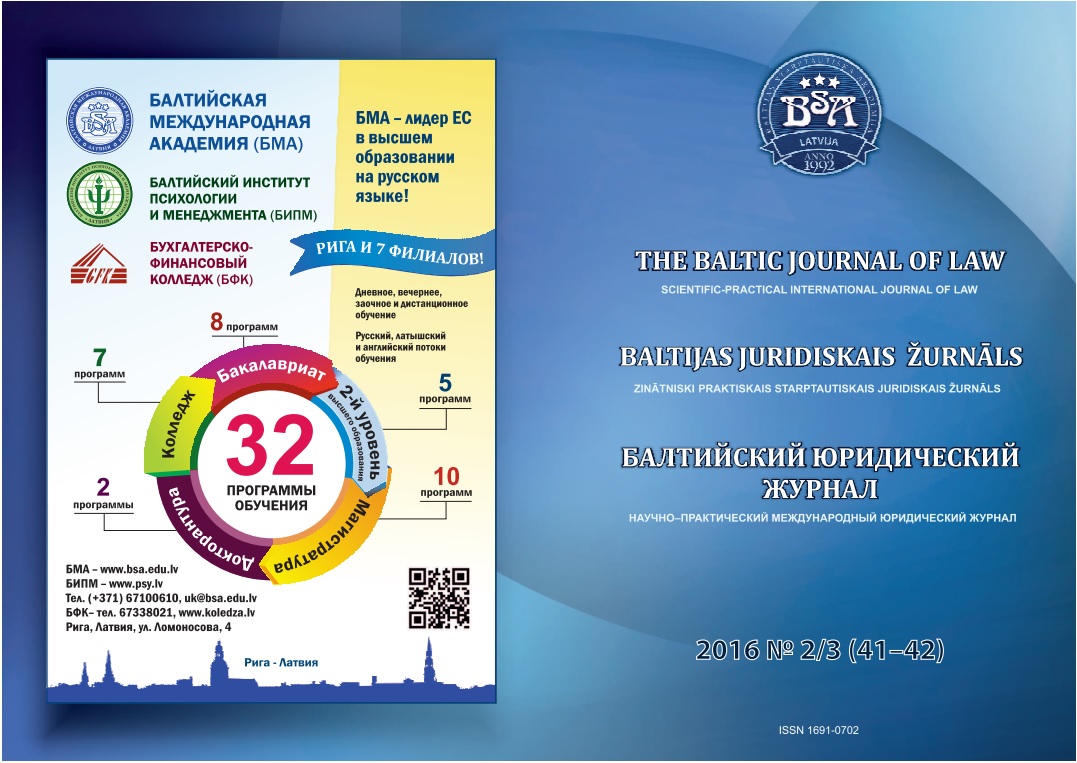
Due Due the political and religious discords the issue of money laundering and terrorist financing is the main discussion topic at the global arena. Illegal cash flows and terrorist financing affect not only our daily lives but also national integrity, stability and economic growth and development. In this regards, the more coordinating and efficient steps for combating money laundering and terrorist financing shall be taken. The European Parliament and the Council animated stronger rules to combat money laundering and terrorism financing by adopting on 20 May 2015 the 4th Money Laundering Directive (hereinafter AMLD4) [1]. The AMLD4 introduced more clarified, substantive and procedural minimum provisions in order to effectively fight against international money laundering and terrorist financing. This paper aims to assess whether the measures adopted are effective in the fight against international money laundering and terrorist financing and as well as evaluate possible problems while transposing the provisions into national frameworks.
More...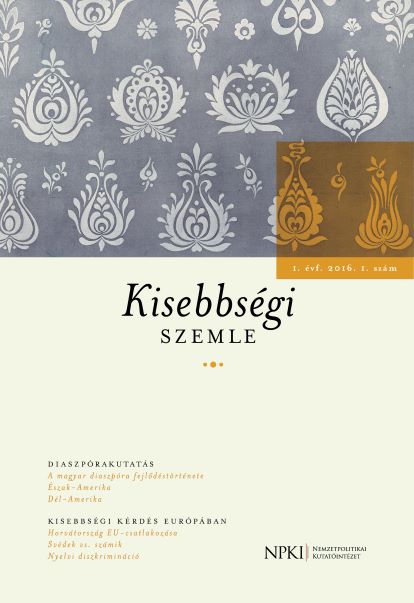
Croatia acceded to the European Union, becoming its 28th Member State in 2013 after approximately ten years of negotiations. Croatia is the second former Yugoslav republic to join the European Union. As it is well known, both the State and its society actively took part in the straggles of the civil war of the southern Slavic nations in the 1990s. In my article, I deal with how current Croatian legislation was evolved and improved after the independence of Croatia with due attention to the EU-Croatia negotiations for integration.
More...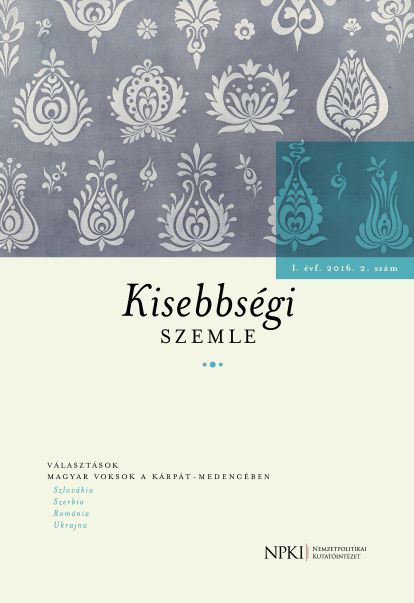

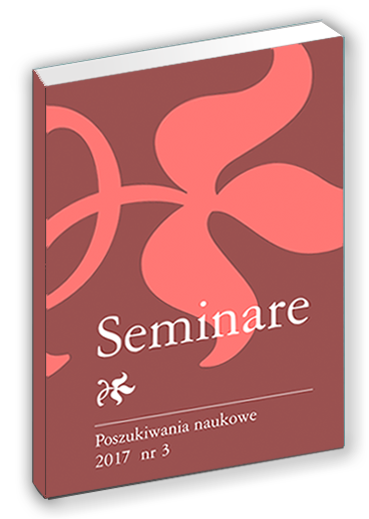
The article introduces the Blue Cards data of the District Police Headquarters in Żyrardów from the period of 2012-2015. It concentrates on such issues as: the number of completed forms of Blue Cards over the mentioned period of time, the domicile of persons filling them up, the profile of victims and perpetrators of domestic violence, the number of domestic violence perpetrators detained by the police, perpetrators under the influence of alcohol and types of violence and the help offered to victims. Selected issues from the empirical part were compared with the earlier research conducted by the Author in the discussed subject area.
More...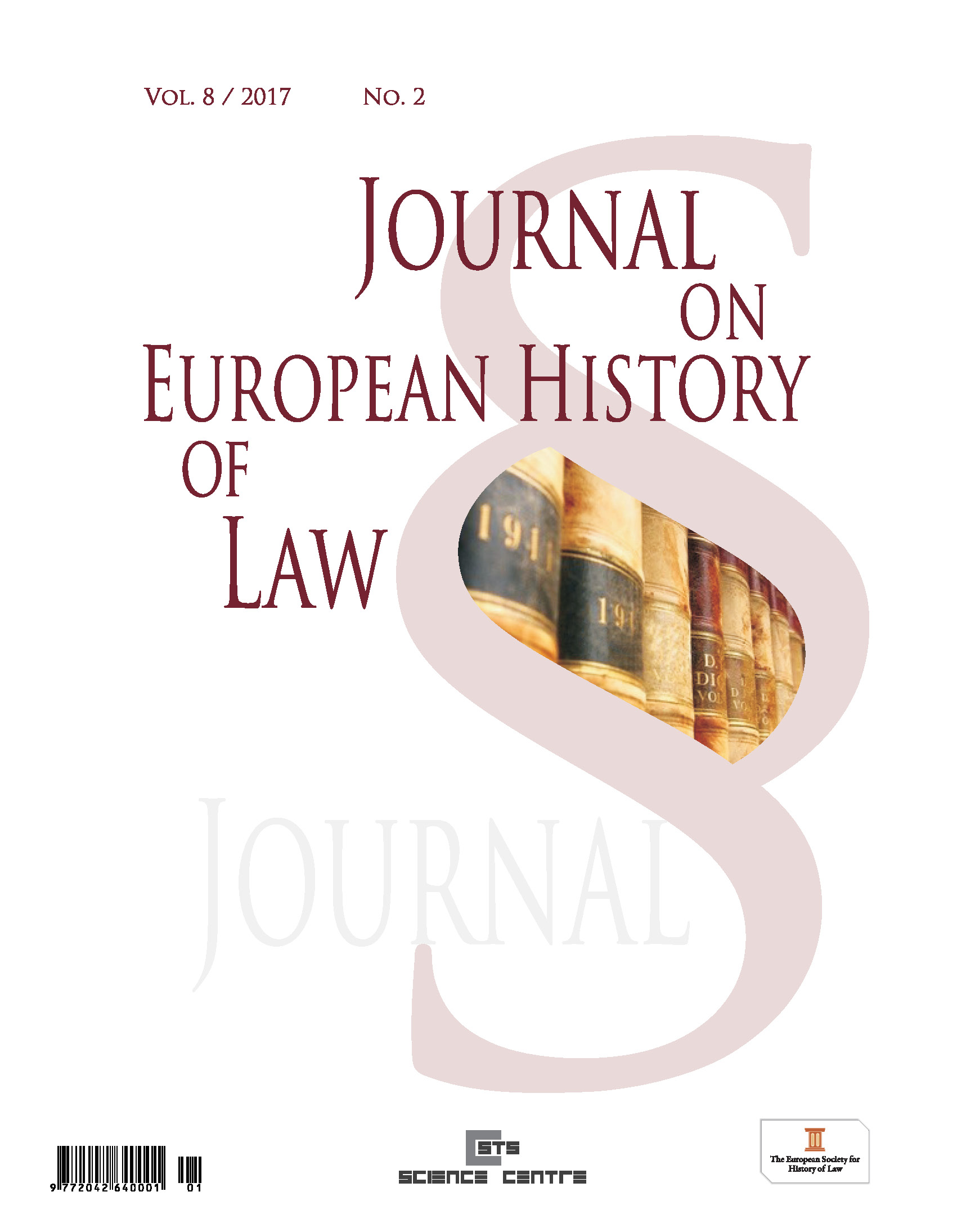
Hereditary monarchy and enlightenment political theory hardly seem to be reconciled at first glance. And yet, the advantages and disadvantages of monarchical succession according to lineage were a continuous subject of debate between some of the most prominent enlightenment thinkers. Outlining this debate, the paper at hand gives an – even if eclectic – account of a controversy that spans over more than two and a half centuries.
More...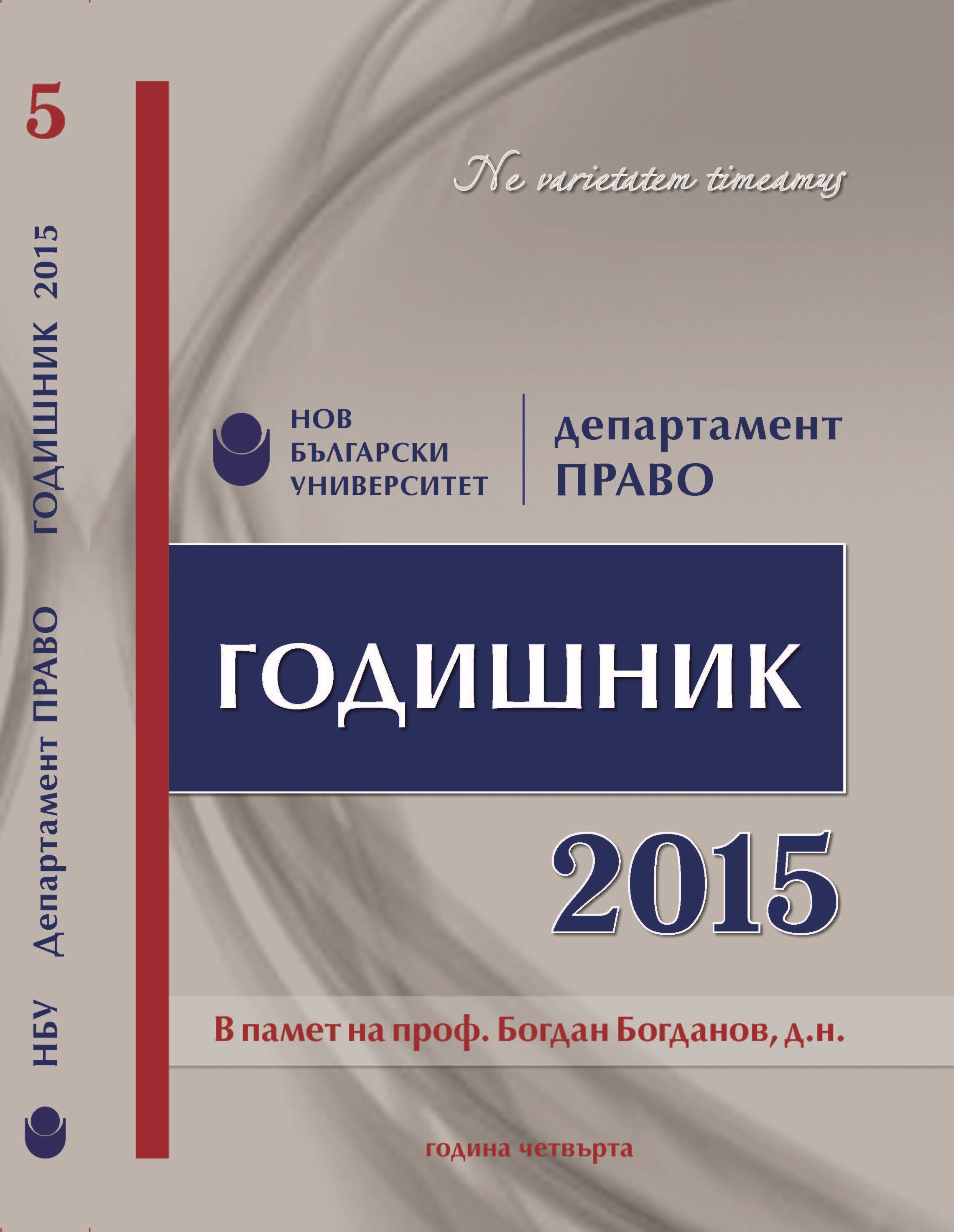
This paper explores some aspects of the supranational criminal protection against terrorism. It begins with an outline of the traditional approach to the issue, namely from the perspective of the international criminal law, which considers terrorism as a crime of an international character. Special attention is paid to the basic characteristics of the Criminal law of the European Union as the new and most rapidly expanding field of European law. The position of the EU legislature in the area of combatting terrorism is examined. Finally, the challenges posed to national criminal law are defined.
More...
One of the foundational laws of the Republic of Turkey on the exclusion of the Ottoman heritage and Islam is the Law 677 which was enacted in 1925. The Law outlawed the mystic orders and closed their lodges as well as hundreds of shrines in the country and prohibited visiting them. Shrine keepers were dismissed and replaced by shrine officers in some shrines. Relying substantially on Republican archives, Parliamentary Proceedings and the previously untapped archival evidence from the Istanbul Museum Directorate of Shrines (İstanbul Türbeler Müze Müdürlüğü), this article examines the transformation of this occupation and “nationalization” of shrines from 1925 to the 1970s by situating the analysis within its legal context. It will elaborate who was a shrine keeper in the late Ottoman Empire, what happened to the shrines and shrine keepers after the shrines were closed down, the theft incidents the new shrine officers were involved with, policies regarding the “nationalization” of shrines and the tensions as well as negotiations between different actors regarding the shrines. Aiming to shed light on a previously untackled aspect of republican history, the article demonstrates how the abandonment of shrines and the policy of nationalizing and turning them into museums brought along a rupture in the cultural history of the country and contributed to the destruction of historical heritage.
More...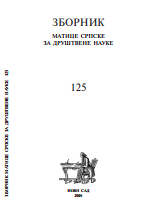
The conditions for marriage under the prewar law in Vojvodina were numerous and more complex than in our contemporary law. In the prevailing part of Vojvodina in that time there was in effect the Hungarian Family Law Act from 1894 by which civil marriage was introduced and religious differences were abolished as a marriage impediment. Religious form of marriage was still in effect in Srem and in those parts of Vojvodina which were before unification under Austrian jurisdiction (Military Border). Cohabitation was not recognized and had no family law effects. Legal status of the children born out of wedlock was much worse than the legal status of the children born in wedlock. Discrimination on the ground of sex was a rule, not only in the law of Vojvodina, but also in other parts of The Kingdom of Yugoslavia. For example, women could get married only with the dispensation of the minister of justice, at the age of 16, while men could get married at 18. Woman was subordinate to her husband and could legally represent only her children born out of wedlock. She could exceptionally be the legal representative of her children born in wedlock.
More...